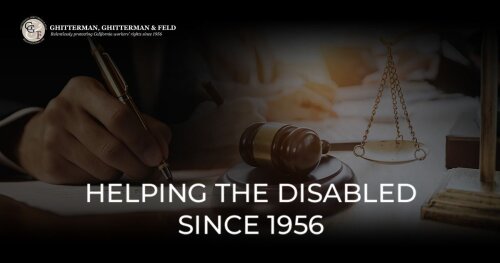Best Whistleblower & Qui Tam Lawyers in Vermont
Share your needs with us, get contacted by law firms.
Free. Takes 2 min.
Or refine your search by selecting a city:
List of the best lawyers in Vermont, United States
About Whistleblower & Qui Tam Law in Vermont, United States
Whistleblower and Qui Tam laws are designed to protect individuals who expose wrongdoing, fraud, or illegal activities, especially those involving government funds. In Vermont, these laws allow people, known as whistleblowers or relators, to report fraudulent actions committed against federal, state, or municipal programs. Specifically, Qui Tam provisions enable private citizens to file lawsuits on behalf of the government to recover stolen or misused taxpayer money. If successful, whistleblowers may be entitled to a portion of the recovered funds, incentivizing the reporting of fraud while also providing protections against workplace retaliation.
Why You May Need a Lawyer
Navigating the complex field of whistleblower and Qui Tam law can be challenging. There are several situations where legal counsel becomes crucial:
- You suspect or have evidence that your employer or another party is defrauding the government.
- You are considering filing a Qui Tam lawsuit and want to understand the process and potential risks.
- You have experienced workplace retaliation, such as termination, demotion, or harassment, after reporting misconduct.
- You are unsure whether the information you have qualifies as actionable under Vermont or federal whistleblower statutes.
- You want to ensure you are eligible for a reward and that your claim is properly filed within the legal deadlines.
An experienced attorney can help you gather evidence, understand your rights, protect you from retaliation, and represent your interests throughout the legal process.
Local Laws Overview
Vermont has enacted its own False Claims Act, similar to the federal False Claims Act, to combat fraud against state and local government programs. Vermont law allows private citizens to file Qui Tam actions on the state’s behalf to recover funds obtained through fraudulent means. The statute protects whistleblowers from retaliation and sets out reward provisions, giving qualifying whistleblowers a percentage of the monies recovered. Key aspects of Vermont’s whistleblower and Qui Tam laws include:
- Coverage of fraudulent actions relating to state and municipal contracts, grants, and programs.
- Anti-retaliation protections for employees who report suspected violations or participate in investigations.
- Strict timelines for filing Qui Tam actions and requirements for filing claims under seal while investigations are pending.
- Eligibility for financial rewards, typically ranging between 15 and 30 percent of the amount recouped.
- Procedures for the Attorney General to intervene in private lawsuits or allow private plaintiffs to proceed alone.
Both Vermont and federal laws may apply, depending on whether the fraud involves state or federal funds. Interplay between these laws can make professional legal guidance vital.
Frequently Asked Questions
What is a Qui Tam lawsuit?
A Qui Tam lawsuit is a legal action brought by a private individual on behalf of the government against a party accused of defrauding government programs. The individual can receive a portion of any recovered funds.
Who can file a whistleblower or Qui Tam lawsuit in Vermont?
Any individual with evidence of fraud against Vermont or federal government funds can file a Qui Tam lawsuit, regardless of their employment status with the offending party.
What protections do Vermont whistleblowers have against retaliation?
Vermont law protects whistleblowers from being fired, demoted, harassed, or otherwise discriminated against as a result of their actions to expose fraud or illegal activity. Legal remedies may include reinstatement, back pay, and damages.
What types of fraud are covered under Vermont’s Qui Tam statutes?
Vermont’s statutes cover a wide range of fraudulent actions, including overbilling, false certification of goods or services, Medicaid fraud, kickbacks, and any act that improperly claims government funds.
Is anonymity possible when filing a whistleblower claim in Vermont?
While Qui Tam suits are initially filed under seal to protect the whistleblower’s identity during government investigation, absolute anonymity cannot be guaranteed, especially if the case proceeds to court.
How much money can a whistleblower receive?
A whistleblower may be entitled to receive between 15 percent and 30 percent of the recovered funds, depending on the circumstances and their role in initiating the case.
How long do I have to file a whistleblower or Qui Tam claim in Vermont?
Generally, Vermont law requires claims to be filed within six years of the violation or within three years of when the violation was discovered, not to exceed ten years from the date of the violation. Timelines can vary based on specific facts.
How does the Vermont Attorney General interact with Qui Tam cases?
Once a claim is filed, the Vermont Attorney General or a local prosecutor’s office can choose to intervene and take over the case or allow the whistleblower to continue the litigation.
Will I need to appear in court?
Many cases settle before trial, but as a relator or whistleblower you may be required to provide testimony or appear in court if the case proceeds to litigation.
Can I file both federal and state claims?
Yes. If the alleged fraud affects both federal and Vermont government funds, you may be able to pursue claims under both federal and state laws with the help of legal counsel.
Additional Resources
For those seeking more information or support regarding whistleblower and Qui Tam matters in Vermont, the following resources may be helpful:
- Vermont Office of the Attorney General - Medicaid Fraud and Residential Abuse Unit
- United States Department of Justice - False Claims Act Section
- Vermont Human Rights Commission
- National Whistleblower Center
- Legal Aid organizations in Vermont
These organizations can provide valuable information, assistance with initial questions, and direct people to legal professionals if necessary.
Next Steps
If you believe you have information about fraud against a Vermont or federal government program, or if you have experienced retaliation for whistleblowing, consider consulting an attorney who specializes in whistleblower and Qui Tam law. Keep detailed records and gather any evidence related to your concerns. You may contact the Vermont Attorney General’s Office for preliminary guidance, but an attorney can help you evaluate your case, navigate the filing process, explain likely outcomes, and protect your rights throughout the proceedings. Taking prompt action is important, as strict deadlines apply. Your efforts could help recover public funds, prevent further harm, and ensure you are protected and rewarded for coming forward.
Lawzana helps you find the best lawyers and law firms in Vermont through a curated and pre-screened list of qualified legal professionals. Our platform offers rankings and detailed profiles of attorneys and law firms, allowing you to compare based on practice areas, including Whistleblower & Qui Tam, experience, and client feedback.
Each profile includes a description of the firm's areas of practice, client reviews, team members and partners, year of establishment, spoken languages, office locations, contact information, social media presence, and any published articles or resources. Most firms on our platform speak English and are experienced in both local and international legal matters.
Get a quote from top-rated law firms in Vermont, United States — quickly, securely, and without unnecessary hassle.
Disclaimer:
The information provided on this page is for general informational purposes only and does not constitute legal advice. While we strive to ensure the accuracy and relevance of the content, legal information may change over time, and interpretations of the law can vary. You should always consult with a qualified legal professional for advice specific to your situation.
We disclaim all liability for actions taken or not taken based on the content of this page. If you believe any information is incorrect or outdated, please contact us, and we will review and update it where appropriate.
Browse whistleblower & qui tam law firms by city in Vermont
Refine your search by selecting a city.










